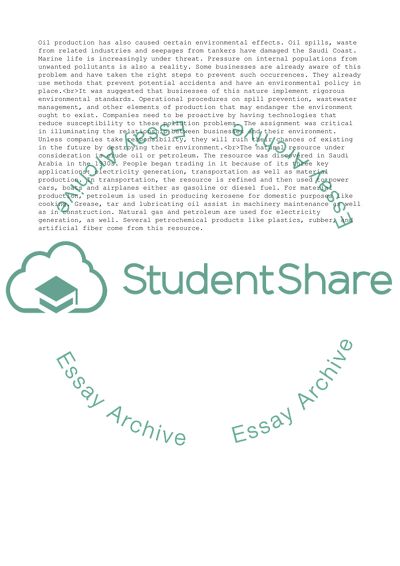Cite this document
(Oil in Saudi Arabia Assignment Example | Topics and Well Written Essays - 1750 words, n.d.)
Oil in Saudi Arabia Assignment Example | Topics and Well Written Essays - 1750 words. Retrieved from https://studentshare.org/business/1816985-oil-in-saudi-arabia
Oil in Saudi Arabia Assignment Example | Topics and Well Written Essays - 1750 words. Retrieved from https://studentshare.org/business/1816985-oil-in-saudi-arabia
(Oil in Saudi Arabia Assignment Example | Topics and Well Written Essays - 1750 Words)
Oil in Saudi Arabia Assignment Example | Topics and Well Written Essays - 1750 Words. https://studentshare.org/business/1816985-oil-in-saudi-arabia.
Oil in Saudi Arabia Assignment Example | Topics and Well Written Essays - 1750 Words. https://studentshare.org/business/1816985-oil-in-saudi-arabia.
“Oil in Saudi Arabia Assignment Example | Topics and Well Written Essays - 1750 Words”, n.d. https://studentshare.org/business/1816985-oil-in-saudi-arabia.


